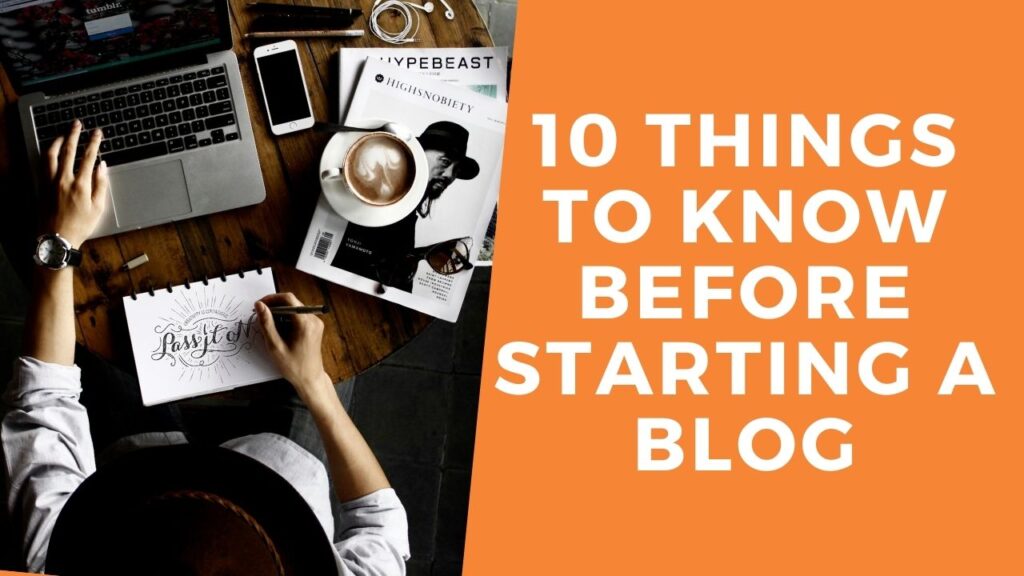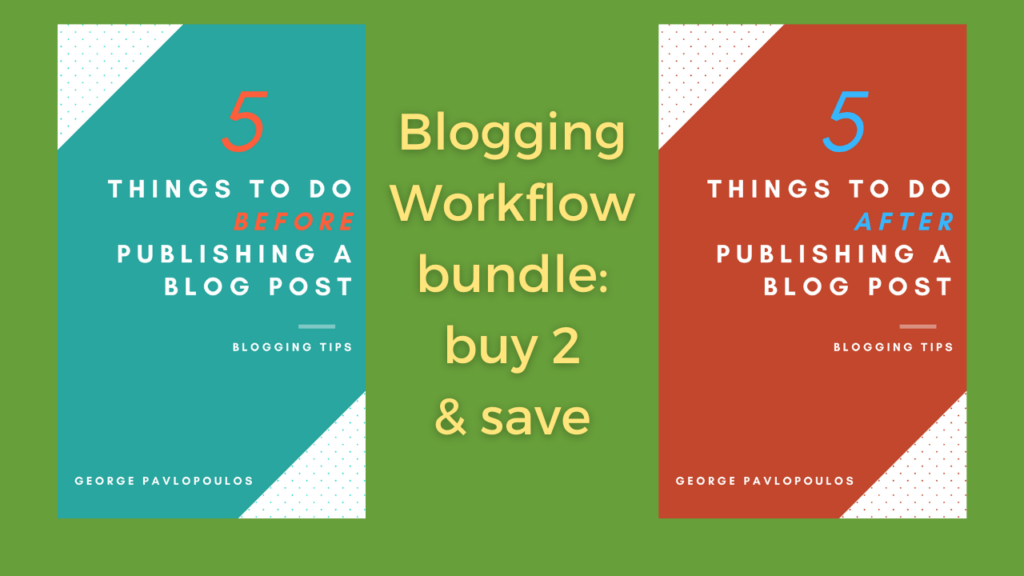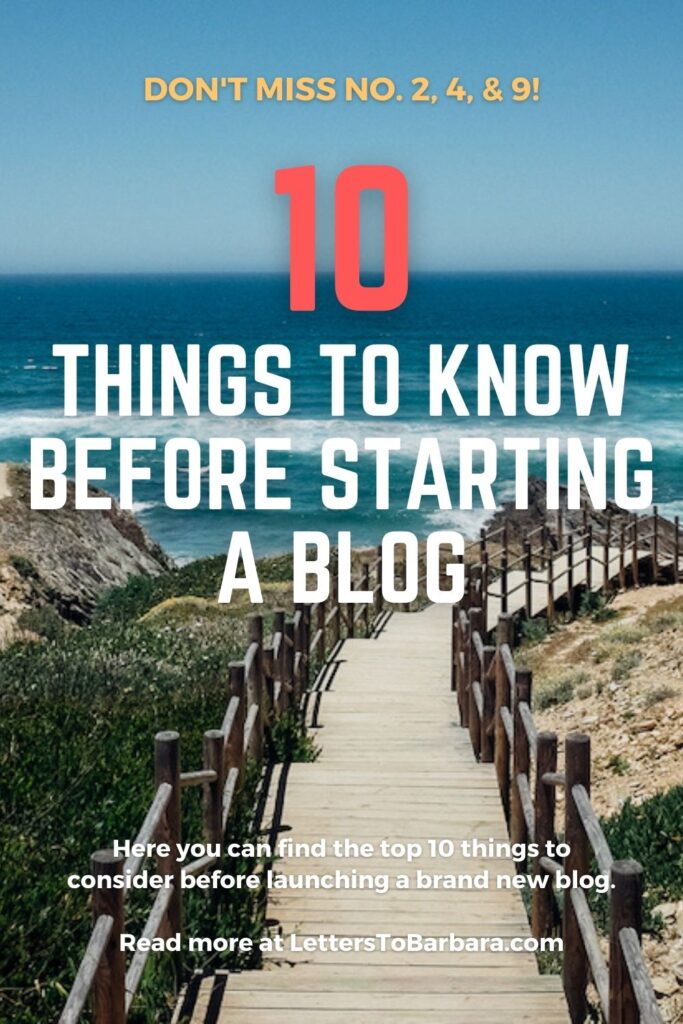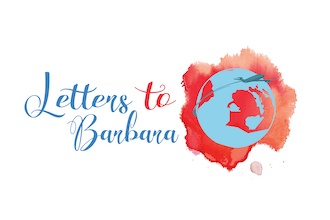In the weeks before starting my travel blog, I worried a lot about the background tasks of blogging. What does it actually mean to run a blog? What should I consider before starting to blog? I kept reading night and day because I was sure there were plenty of things to know before launching a website. And I wanted to know them because I thought there was no other way to run a blog successfully.
However, experience is not easily transferred. Each of us has to go through several trial and error phases before giving blogging advice. I decided to write this post about the 10 things to know before starting a blog for two reasons. The first one is to help you build a blogging mindset for the long term. And the second one is to offer some blogging tips that will save you some (or lots of) trouble.
That said, whatever is mentioned in this article deals with the things to consider before launching a blog. So get ready for a long and comprehensive article.
Let’s start.
*The text contains affiliate links. It means that if you buy something, I might earn a small commission at no additional cost to you.
10 things to know before starting a blog

1. Be prepared to invest in your blog
Even if you want to blog for fun, it doesn’t mean that you won’t have any expenses as time goes by. For example, you will sooner or later realize that you might need a smartphone with a better camera or even a brand new laptop. There will always be plenty of things to consider buying as you develop as a blogger. While this doesn’t mean that you’ll have to spend a fortune for your blog, it also doesn’t mean that it’ll always cost you zero.
Of course, if you are more serious about your blog, expenses will be higher. For example, if you decide that you’d love to make some money from your blog, then you’ll have to invest in it. Buying a professional theme, investing in some pro plugins that will automate (i.e., make easier) your blogging life, or spending some money to advertise yourself, are all expenses that sooner or later you’ll have to decide if you need them or not. So, what should you do?
Invest. This doesn’t mean, of course, that you’ll have to spend money on whatever pops up in your mind. On the contrary, you should be very careful about how you spend. But if you find yourself investing in the X software/gear/plugin that will make your life easier and improve your blog’s quality, you should go for it.
And the reason is simple: you want to give your blog the opportunity to thrive. Sure, no one can guarantee you that your blog will succeed or make lots of money. But if there’s a chance for success, do you really want to be the one who doesn’t give it the opportunity?
Takeaway point: Decide how much you can invest before starting your blog and stick to your budget. Don’t go all-in before even starting but don’t think you’ll have zero expenses for years.
Bonus: See the best blogging tools for beginner bloggers.
2. Decide on your web hosting provider before starting a blog
This blogging tip will save you unwanted trouble. You can start blogging on any platform, free or paid, but if you don’t do your research beforehand, you might later face a dilemma: should I stay on X web hosting provider or change to Z? And that’s probably where the struggle begins.
Apart from finding the best web hosting, you’ll also face another problem: migration. This means that you’ll have to move your blog’s content from one provider to the other. For the average user, the one that has some knowledge, this already means struggle. If you are a pro, you might know exactly how to do it efficiently, but be prepared for some stress if you aren’t.
During this migration phase, there will be things that might not be transferred and others that might be forever lost. Yes, most companies claim that the process is easy, but that’s usually not true. Moreover, you will probably receive little help from your new host, and you’ll have to deal with it yourself. If you don’t know how to do it, there’s only one way to achieve it: hire someone to do it for you. And this will cost you quite some money.
All that said, I can highly recommend you to decide on your web hosting platform before starting a blog. It will save you trouble down the road, and you’ll have peace of mind to do what you know best: blogging. Unless if you are totally disappointed with your web hosting provider, don’t change it. And as your blog grows bigger, your web hosting provider will have better plans to accommodate your traffic.
For example, I chose Bluehost before starting my travel blog. I bought their Choice Plus Plan (which is rather cheap) and started building my blog. A couple of years later, after the blog started receiving traffic, I upgraded my plan to Pro. I find Bluehost great for my needs, and I have never had downtime so far. I highly recommend Bluehost (see my Bluehost review here), and I don’t consider switching to another host any time soon.
Takeaway point: Decide on your web-hosting provider before launching your blog. As a beginner blogger, you don’t need the struggle of migrating to different hosts or platforms. A hosted WordPress blog is your best and safest option.
3. Social Media is not the place to look for website traffic
The Social Media landscape becomes more and more saturated as time goes by. Apart from that, for beginner bloggers, that’s not the place to look for traffic. Every Social Media out there wants to keep the users on their platform. They want you to spend time there because that’s how they can show you ads and make money. The last thing they want is users leaving their platforms and seek info elsewhere.
Unless you have a big Social Media account that receives tons of engagement, don’t look there to bring traffic to your blog. Sure, you can post your links on your Social Media accounts and get some clicks but don’t expect miracles. The algorithms will make your posts less visible, and if you want people to see them, there’s only one thing to do: pay for ads.
Honestly, and that’s my take from day one, I prefer not to spend on Social Media ads. Instead, I prefer investing in other forms of advertisement or simply investing in software/gear that help me blogging. And on the next section, I will share how I chose to bring traffic to my blog.
Takeaway point: Don’t try to grow your blog traffic only by focusing on Social Media (unless you have a big account). Use them as a supplementary way to bring traffic.
4. Learn how to do SEO before starting a blog
While you should always blog having humans in mind, you should also learn how to do SEO. You probably heard it before: SEO stands for Search Engine Optimization. It practically means that you make your content discoverable by search engines. That’s the best way to grow your blog traffic, and more importantly, that’s free blog traffic.
SEO is probably the holy grail of content creation. If you can master SEO, you can really drive tons of traffic to your website. For example, if you end up on the first page of Google for a competitive keyword, you can expect loads of traffic. As you can easily imagine, SEO is not something you can succeed in from day one, and it takes time to master. But blogging success doesn’t come quickly anyway. So it’s better to start learning the basics of SEO before starting your blog.
There are plenty of free and paid tools to consider for improving your rankings and your SEO knowledge. I use KeySearch (read my KeySearch review and tutorial here), and it helps me find keywords for which I can rank and, subsequently, bring traffic to my blog. Despite having a ~30K Instagram account, I decided to focus on SEO instead of Instagram. Today, 73% of my traffic is organic (i.e., search engines) and only 9% from Social Media.
If you want to learn SEO and are interested in KeySearch, there’s a special offer for the readers of Letters to Barbara. You can follow this link to KeySearch, add LTB20 at checkout and receive 20% off on any of their annual plans.
Takeaway point: For the long-term success of your blog, writing SEO structured posts is the best way to go. It’s one of the best things to know before starting a blog, and you should start studying it early. Organic traffic is free blog traffic, and creating evergreen content can lead you to successful blogging.
5. Prepare yourself for the bad blogging days (they always come)
Well, that’s definitely not something you want to hear, but the truth is that you should consider it before starting a blog.
I know exactly how it feels to be ready to start your blog: loads of enthusiasm, optimism, and dreams for a bright future. And that’s exactly how it should be. You are creating something from scratch, a blog that only you could start. You want to show who you are, and you want to see it succeed.
And then, something (or even everything) goes wrong. It can be a variety of things, actually: from writer’s block to feeling uninspired. Or to talk about myself, to run a travel blog during a pandemic. So how can you deal with such things?
Not everything will be great in your blogging life. But if you don’t want to skip something you started and struggled for, you should be ready for the bad days. Obviously, there’s not just one way to deal with it. In fact, there are plenty of ways, but here I’m going to share what kept my blog alive during the tough times.
And that’s simple: blog post ideas. While creating content in real-time is important, having blog posts in your drawer (or your hard drive) is even more essential. There will be times that you won’t be able for whatever reason to blog. Lack of inspiration can be one thing; pure boredom can be another. You might also be too busy to blog about the things you love. But if you keep writing down blog post ideas for the future, it can save you some trouble.
In my case, I kept writing blog posts for the future. What does this mean? Well, it means that I had several drafts aside for times that I couldn’t travel. I didn’t, of course, predict the pandemic. But I always had in mind that there might be times that I couldn’t travel (ex. not enough money) or that I wouldn’t want to travel for whatever reason. When the pandemic hit the planet, travel was not a thing anymore. Did this mean that I should stop blogging? No, it meant that I had to diversify the blog content and look in my blog post ideas.
It took me more than fifteen months to start traveling again. During this time, the easiest approach would be to either stop blogging or keep it alive. I decided on the latter—the blog post ideas that I had in my notebook, plus the drafts I saved. I kept my blog posting habit and could upload new posts every Saturday, as I did pre-pandemic.
Takeaway point: Be ready for the bad days. Work on your drafts, write down even the silliest ideas for future blog posts, and try to diversify your content when things go wrong.
6. Blogging is hard work
A common misunderstanding is that blogging is an easy thing that doesn’t require too much time. However, if you are serious about blogging, it’s probably the opposite: it means hard work and lots of effort.
Unless you use your blog as a diary where you write whenever you are in the mood, blogging can often be a struggle. Apart from taking care of some technical aspects, blogging means dedication. You will have to write new content, you’ll have to be consistent in your blogging schedule, and you’ll have to work plenty of hours to grow it.
There will be days when you’ll work several hours on your blog, yet you won’t see any outcome (money, traffic, etc.). And yet, you’ll have to continue and do the same thing for several days/months in a row. That said, blogging won’t make you rich in two or three months -and you shouldn’t believe people claiming the opposite. From my experience, I’d say that this is 99,99% of the time not true.
All that said, keep your morale and your motivation high. Blogging is not an easy thing and definitely not one that doesn’t need hard work. Finding content ideas, shooting nice photos/videos, optimizing for SEO, and taking care of technical aspects, are not things that won’t request a good amount of time.
Takeaway point: Blogging, exactly like most of the things in life, is hard work. If you think you can see loads of traffic and 5-digits income within a couple of months, better don’t start blogging.
7. Don’t obsess with the metrics
While installing Google Analytics is one of the first things to do before starting a blog, try not to obsess with the metrics. For the first couple of months, you won’t see any significant traffic. It’s sad but true. An obsession with the metrics will sooner or later poison you. Checking every hour how many visits you had will bring you unwanted stress. Let alone that in the long-term, it will demotivate you.
Checking your metrics is useful if it’s done the right way. Instead of focusing on the numbers, try to understand them. Learn what the bounce rate is and how you can bring it down, understand how you can keep the visitors more time on your blog, analyze why some pages perform better than others; these things are far more important for your blog’s future.
The number of visits is important, but it’s not the only one. So instead, it’s better to focus on what these visitors are doing on your blog. Are they reading everything you wrote, or do they just leave? And why do these things happen?
Takeaway point: Checking the stats of your blog constantly will stress you. Focus on understanding what these metrics really mean and how you can improve them.
8. Choose your blog name wisely
This is actually one of the very first things to do before starting a blog. Finding a suitable blog name will be one of the cornerstone elements of your online identity. Therefore, you should spend as much time as you need to find a name for your blog.
Your blog’s name will be the way that people will get to know you. It can be whatever you like as long as it is compatible with the things you intend to present. Choose one wisely and keep it as short as possible. Once again, obsession is not a good thing: it doesn’t matter if it’s two or three characters longer than the norm. What you want to achieve here is to have something that accurately represents what you do.
I wrote a comprehensive article on how to choose your blog name. There you’ll find several tips and techniques plus some external name generators that might help you in your brainstorming process.
Takeaway point: Find a suitable blog name. This should also be your domain name. Then, build your blog around your name and make it memorable for the people visiting your blog.
9. Ignore the haters (let them hate themselves)
A part of building your blogging mindset is dealing with reactions. Of course, you should care a lot about your readers and their criticism. However, among the genuine comments or e-mails you’ll receive, you’ll also encounter a few sporadic idiots. You will receive all kinds of shit from them. From wishing you death to adding all kinds of crap for you or your effort. Yes, I use some graphic language here, but here’s the thing: they shouldn’t even think that their behavior is tolerated.
On the contrary, you should show zero tolerance towards them. First of all, don’t let them poison you. A random idiot on the internet that finds, for whatever reason your blog, doesn’t mean that they should have an opinion about you or your blog. To receive criticism from a person that visits your blog is very important. However, to receive a random message full of hate is something that shouldn’t even touch you. Let them continue their miserable lives and keep on doing what you love. You can’t please everyone -and you can never please a hater.
Decide from day one for zero tolerance to haters. First of all, do not reply to any of their e-mails. And if they become really annoying, search for a legal response. Second, always moderate your comments. Approve the ones that offer something to the discussion, even if they disagree with you. Have a dialogue with the readers; it will definitely help you develop as a blogger. However, you should never approve hate comments. Delete them straight and continue with what you do.
Takeaway point: Ignore haters and don’t feel tempted to reply to them.
10. Reward yourself: dream and write your first blog post
While there are plenty of things to consider and know before starting a blog, there’s one thing you shouldn’t forget: you want to start a blog because you want to start writing. And even if everything else will occupy your thoughts, you shouldn’t forget about writing.
When you daydream of your blog and try to find solutions to the problems that arise, you should always dream about your first blog post. The moment you hit the publish button and your first blog post is out is a moment you should celebrate.
Don’t think that much about your first blog post. It can be anything. I wouldn’t even bother about SEO. If I were you and I was about to start a blog from scratch, I’d write something without overthinking. It would be something honest, something straight from my heart, some sort of welcome to the people that will -sooner or later- find this post.
Yes, every post should be carefully written, optimized for SEO, etc. But for your first blog post, do nothing. Just celebrate the beginning of a nice journey.
Takeaway point: Don’t think too much about what to write in your first blog post. Just celebrate your beginning into the blogging world.
Bonus #1: More blogging resources

There’s a dedicated category about blogging on my site. You can access it here, but you can also see the main topics I covered in the past below.
How much does it cost to start a blog
The best SEO tool for bloggers
Travel blogging gear for minimalists
I also wrote two ebooks about blogging. Within their pages, I analyze the 5 things to do before publishing a blog post and also the 5 things to do after publishing a blog post. They are currently on sale, and you can buy them here.
Bonus #2: How to start a blog
So, are you ready to start a blog? Although I wrote a very long guide on how to start a travel blog (or any kind of blog), here’s how you can start your own blog in just 30 minutes using Bluehost.
- Visit Bluehost via this link and get up to 60% off on any of their plans.
- Choose your Plan. As I wrote earlier, in the beginning, I chose the Choice Plus plan. If you are on a tight budget, though, the Basic plan is also fine.
- Sign up for 3 years to get the biggest discount.
- Don’t buy any of the extras at this stage unless you really need one. You can always buy them at a later stage.
- Add your credit card details and pay.
- Set WordPress. Bluehost offers a one-click WordPress installation. Practically you just hit the Install button, and everything happens automatically.
- You are all set. Familiarize yourself with the interface of WordPress and write your first blog post.
Final words about the things to know before starting a blog
The time before launching a blog is a time to remember. The sweet anticipation, the hope, the dreams, all these things will remind you forever of this wonderful period in your life. Sure, there will always be questions and a certain degree of stress, but these shouldn’t prevent you from starting something new. It’s part of every new beginning and part of every journey.
I wrote about these 10 things to know before starting a blog because I wanted to encourage you to start your own website. With some of them, I wanted to warn you about the struggles you’ll discover down the road; with others, I wanted to save you some time and protect you from potential mistakes.
No matter what, blogging -as I often write- is one of the most rewarding journeys. Apart from having a creative outlet, you will also be able to make some money either directly (ads, affiliate marketing) or indirectly (collaborations). Don’t be afraid to write about the things you love: it’s through blogging that you’ll figure out new aspects of yourself.
Enjoy the journey to the blogosphere.
Read more of my writing and blogging articles here.
Are you interested in travel writing? Check my ebook about travel writing here.
Pin it for later

Please share, tweet, and pin if you enjoyed reading these 10 things to know before starting a blog.
Last Updated on March 12, 2022 by George Pavlopoulos




George, lots of valuable tips here for both newbies and experienced bloggers. Your blog influenced me to buy a Polaroid SX-70 camera, so keep on influencing. I’m currently working on a post in regard to my first 8 shots of SX-70 film. Believe it or not, but I ran into the most powerful person in the State as a result. Hope you read it when it’s posted in the next day or so.
Hey John!
So glad to hear that you got an SX-70! I hope you’ll enjoy shooting with the camera. It takes some time to master it, but you’ll have a great time with it once you do. From my side, I decided (shared it also yesterday on IG) to run a #PolaroidAugust series. All four Saturdays of August will be all about polaroids. Three new diaries are on the way, plus a long review of the SX-70 together with some tips.
Do share your link to your SX-70 photos in a comment. I’d love to see it. Better use one of the polaroid posts so more people can discover it. Looking forward to your shots!
All the best,
George